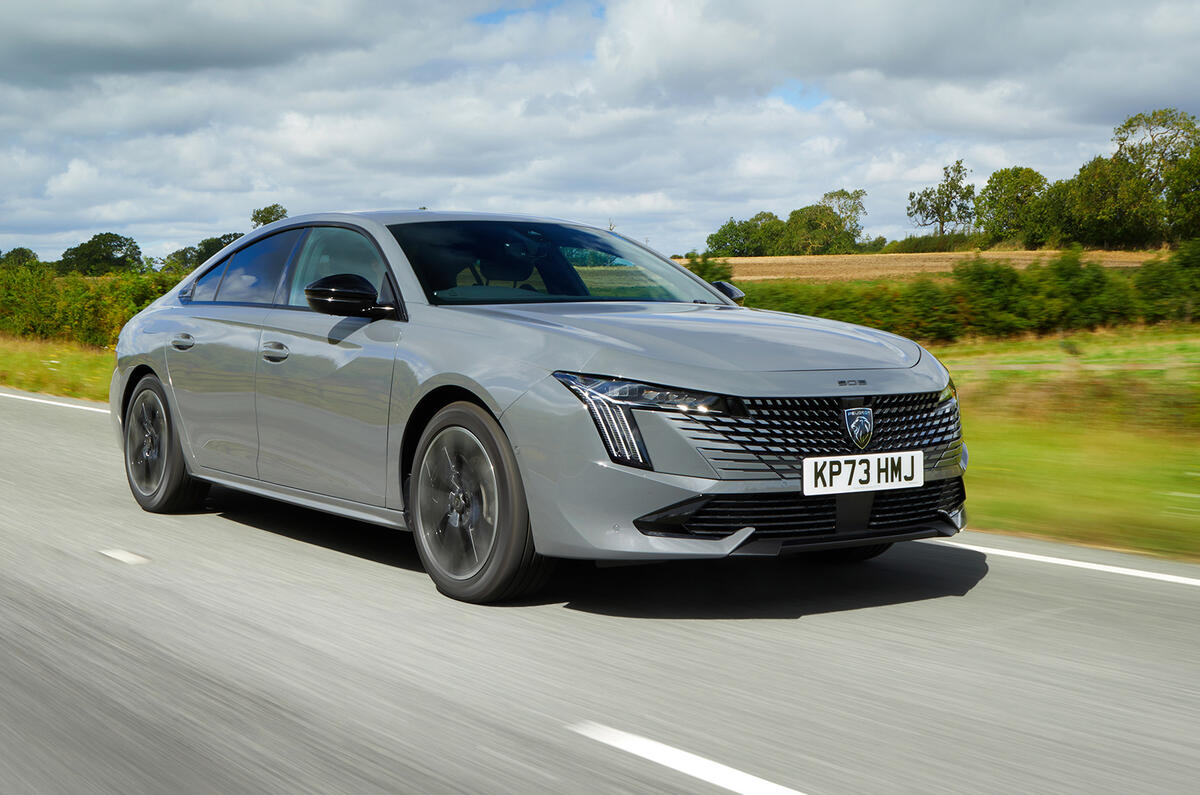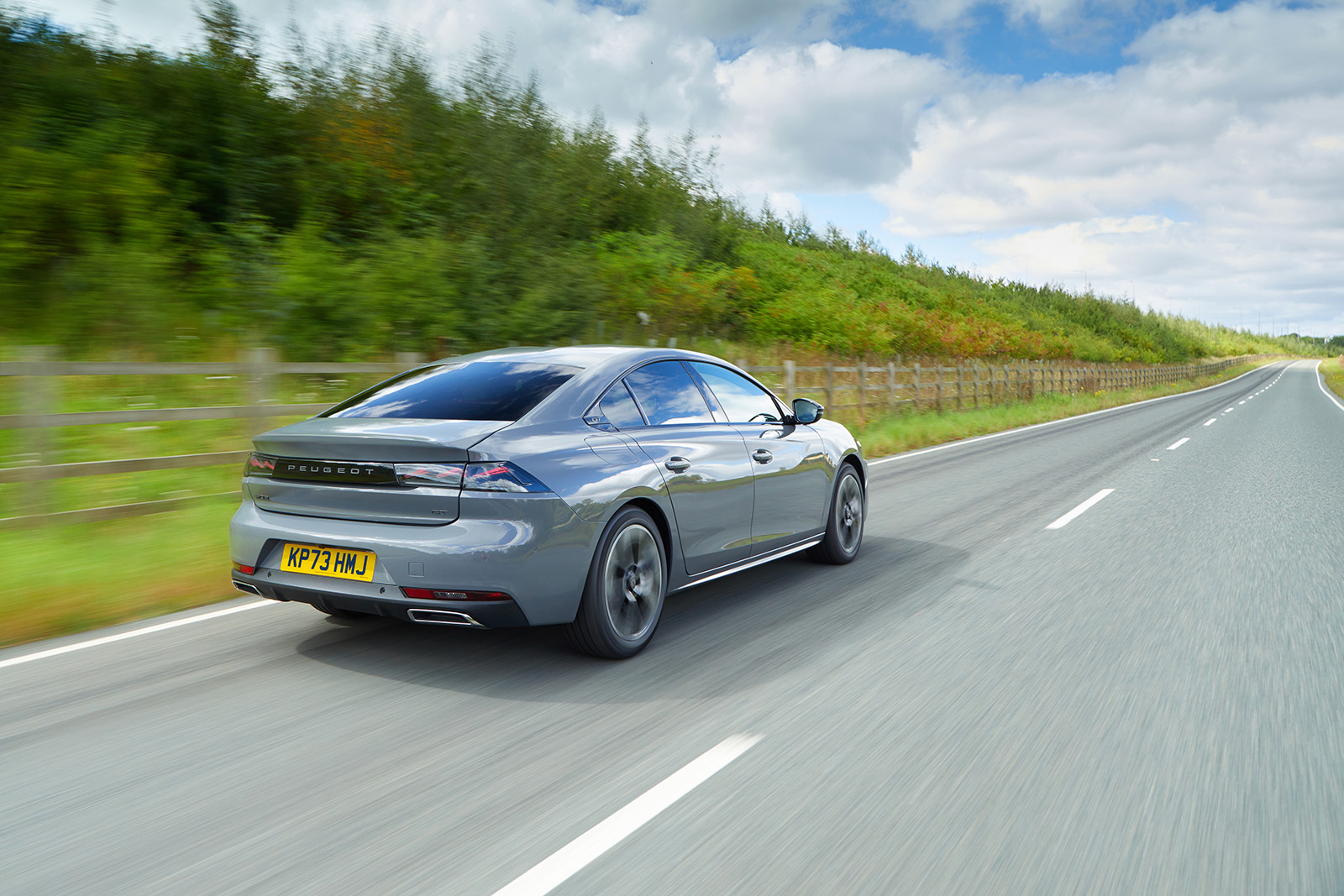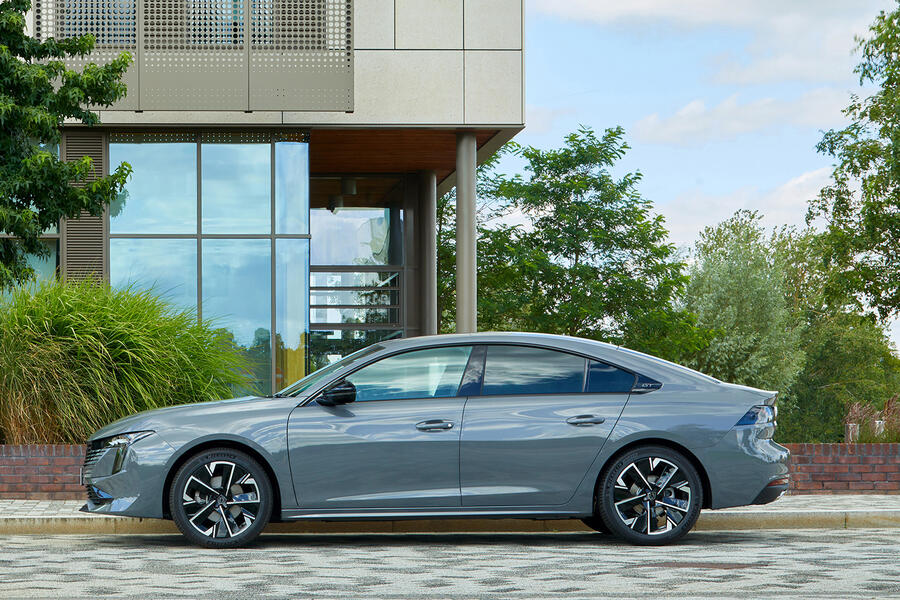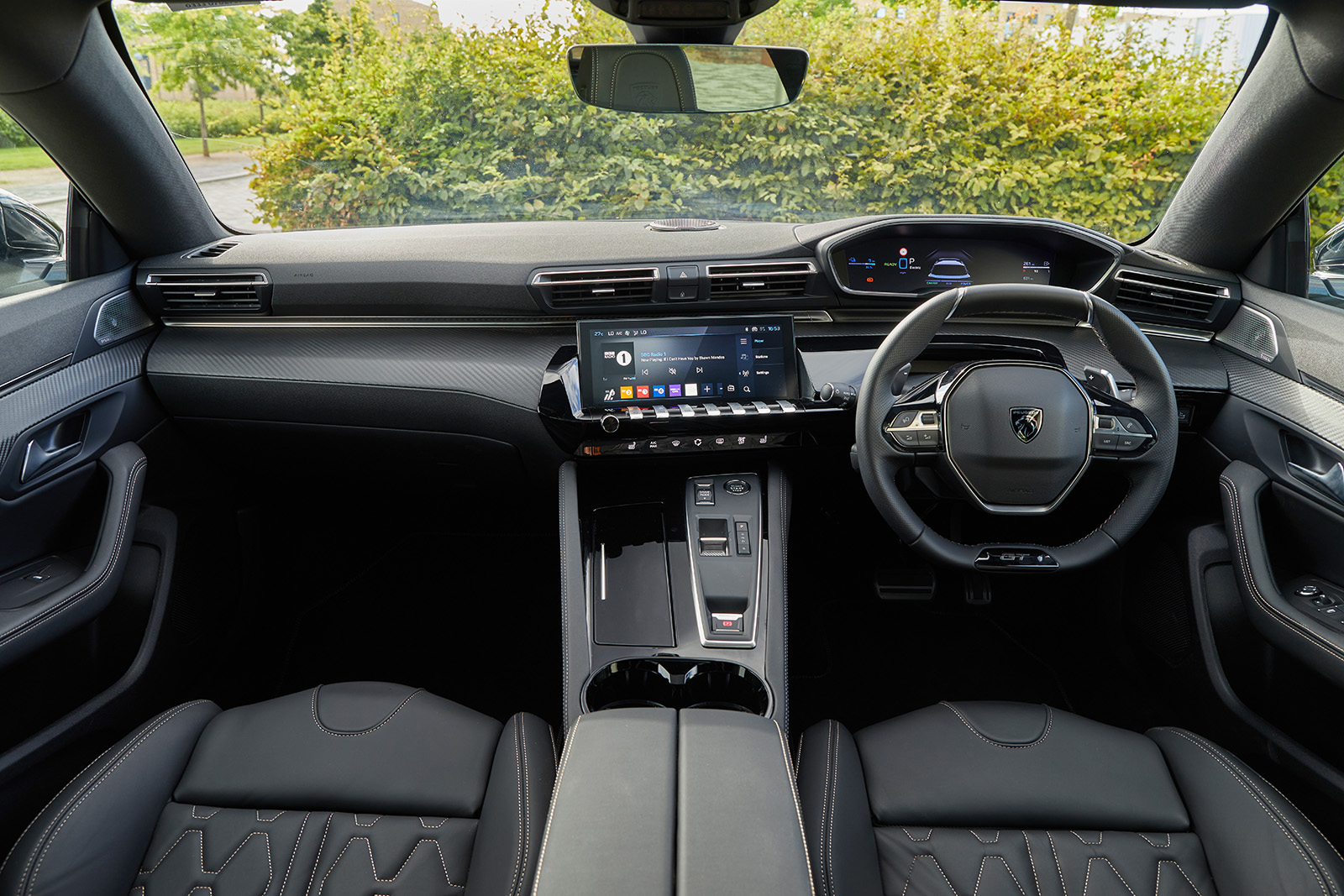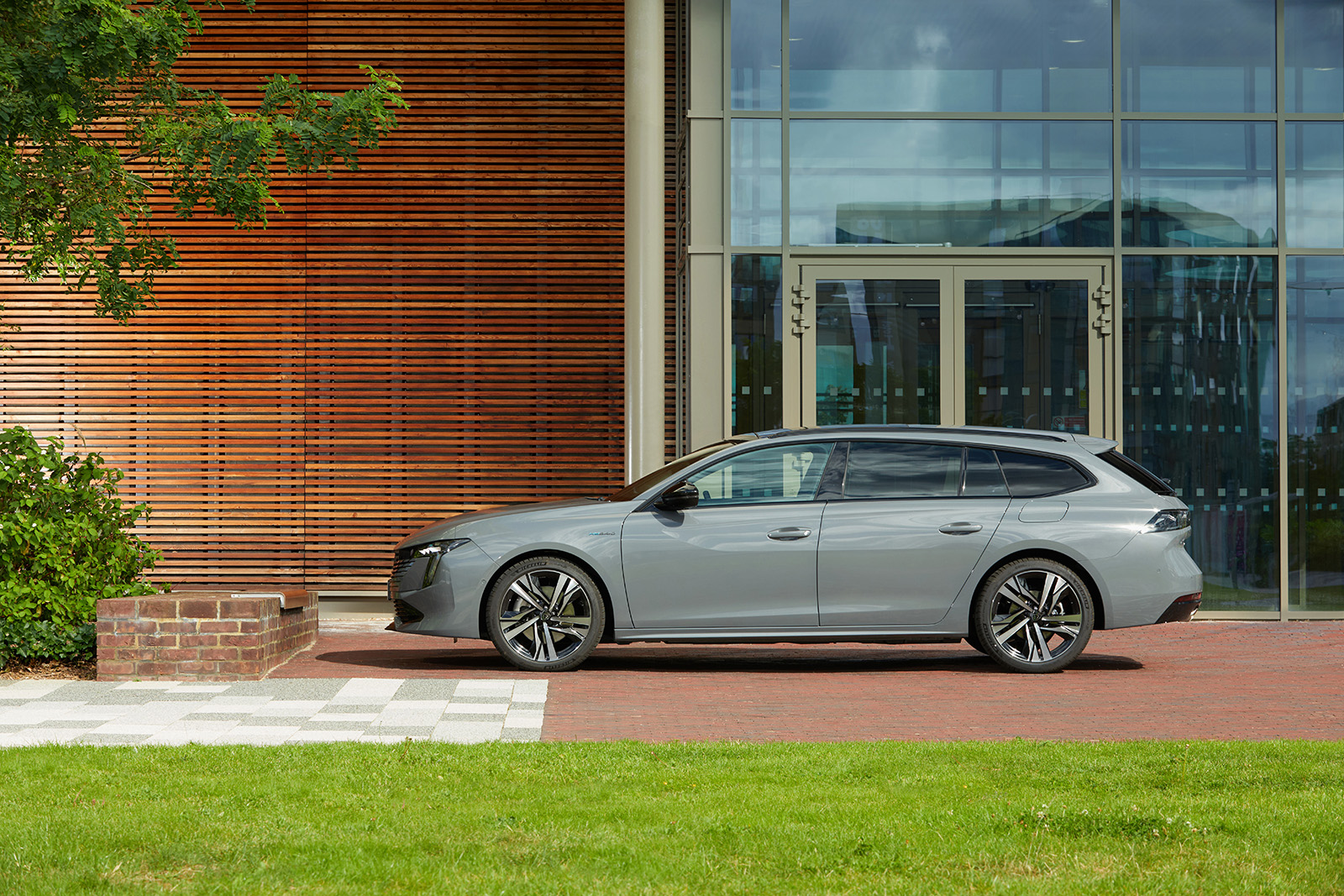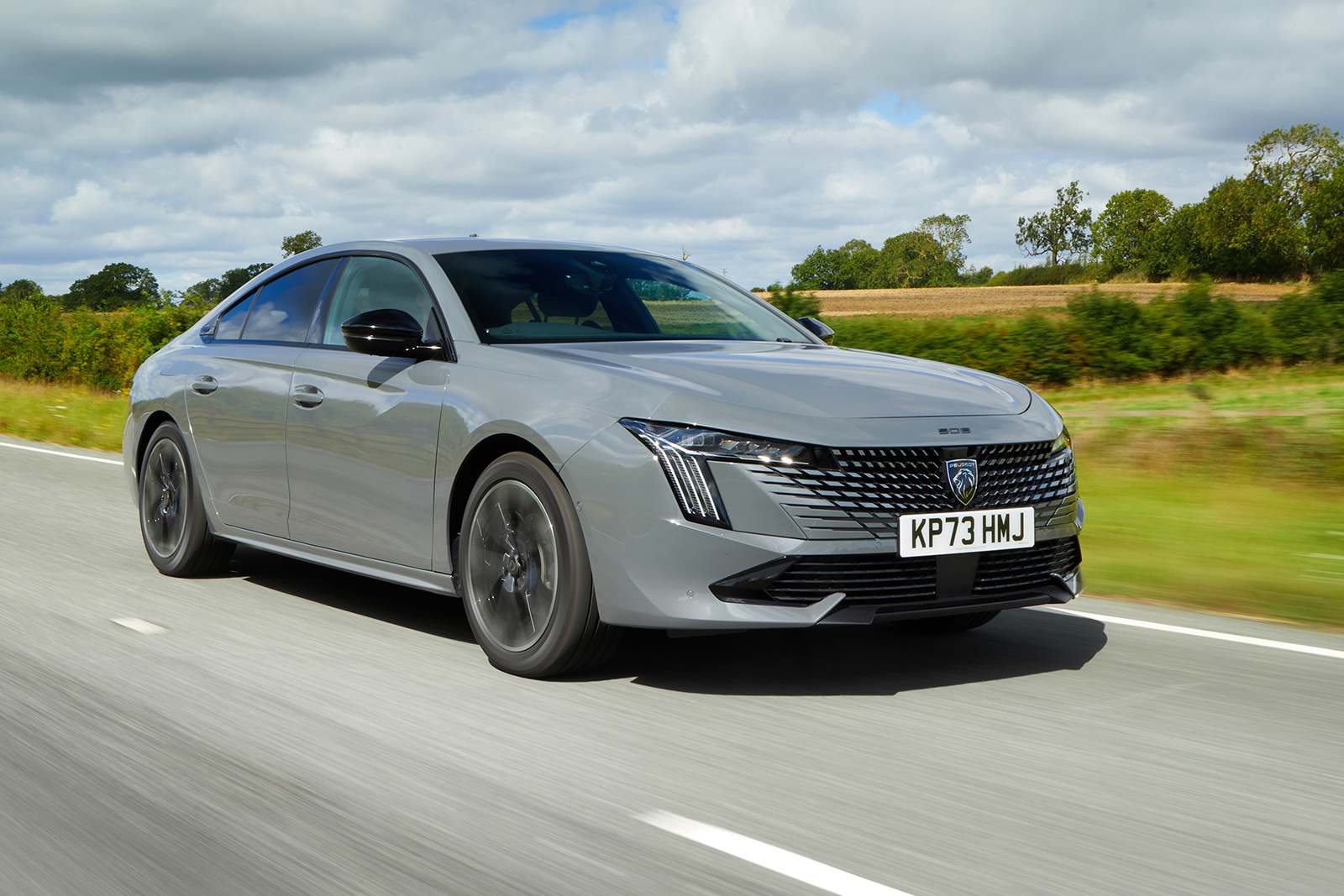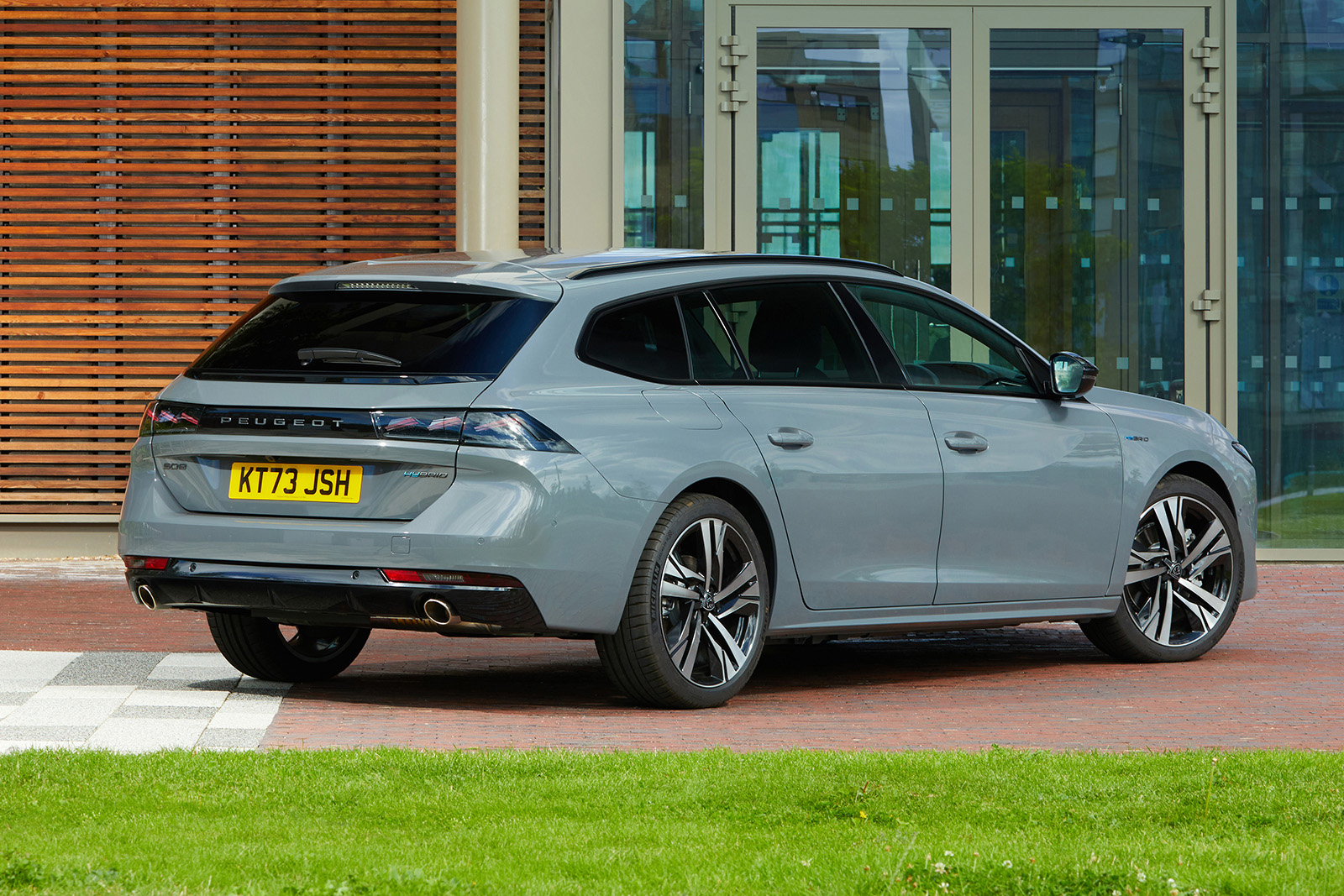Here’s where, a decade or more ago, mainstream car makers had most to do against established ‘premium’ rivals and it’s where it’s obvious, today, that they’ve succeeded. Fit and finish inside the Peugeot 508 are, broadly speaking, quite impressive.
The plastics look marginally better than they feel but, if you removed all the branding, we doubt you’d be able to tell whether the cabin was from a ‘premium’ brand or an aspiring volume one – at first glance, anyway. Assuming, that is, Peugeot’s i-Cockpit layout, which it’s wedded to, didn’t give it away.
The thinking behind this is as it ever was. There’s a small steering wheel – quite squared off – with a heavily assisted rack, and the idea is that you peer over the wheel, rather than through it, at the dials. And those dials, in this case, are new-generation digital ones with crisper display resolution, and slightly clearer and less contrived display modes, than in the pre-facelift car.
Infotainment
Peugeot’s latest-generation, 10in infotainment system in the 508 is derived from the one in the latest 308 hatchback. Rather than the hatchback’s clever customisable ‘e-toggle’ menu shortcut controls, though, it retains the ‘piano key’ physical shortcuts with which the car first appeared.
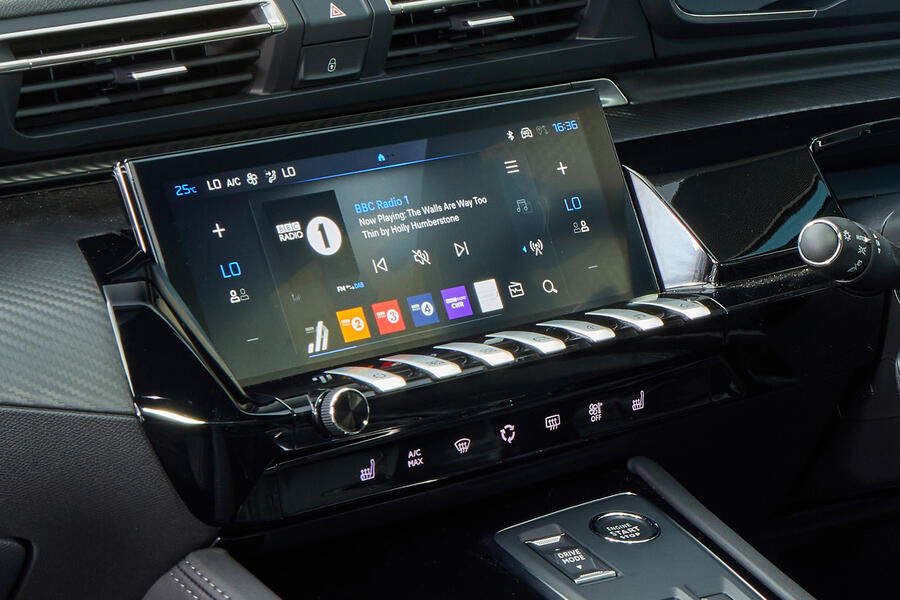
Heating and ventilation remains controlled through the screen itself, a little annoyingly; only now, there’s an easy way to expand the Tom Tom navigation mapping to fill the entirety of the screen, so it’s a little easier to follow. That nav system retains one or two annoying auto zoom quirks, especially for those who prefer a ‘2D North Up’ display mode; but it’s acceptably usable, clear and detailed.
The car’s EU-mandatory lane keeping system is turned off via the infotainment menus, rather than via its own button; but it’s easy enough to achieve thanks to a clever usability trick that Peugeot has included. Whatever mode the system is in, it returns to a top-level menu with a three-fingered press on the screen. From there, deactivation of the lane-keeping aid is just a couple more inputs away (as, presumably, will be the same for the EU-mandated speed limit buzzer, which Peugeot expects to fit from mid-2024 production).
Apple CarPlay and Android Auto come as standard, while wireless device charging is optional on Allure trim and standard on GT; and the car offers both USB-A and USB-C wired charging ports, split between passenger rows one and two.
The ergonomic logic is fine - provided you’re not one of the number of people who find that the combination of wheel positioning, and your hands fixed at quarter-to-three on it (which, presumably, is the whole thrust of the thinking) obscures your view of the instrument screen, particularly while the car is cornering. In our experience, it does for a lot of folk; while others would simply prefer to be sitting lower, looking through the orbit of the wheel at the instruments, and steering in conventional fashion.
Further back in the car, second-row cabin space is certainly meaner than the mid-sized executive saloon class average; but then you don’t design a saloon as sleekly good-looking as this without admitting a few compromises. Adult occupants may find both headroom and legroom tight, and there certainly isn’t room for three grown occupants across the back. But boot space is more class-competitive; especially in the case of the 508 SW, which offers 530 litres of cargo space under the windowline and with the second-row chairs in place (Audi A4 Avant - 495 litres)



